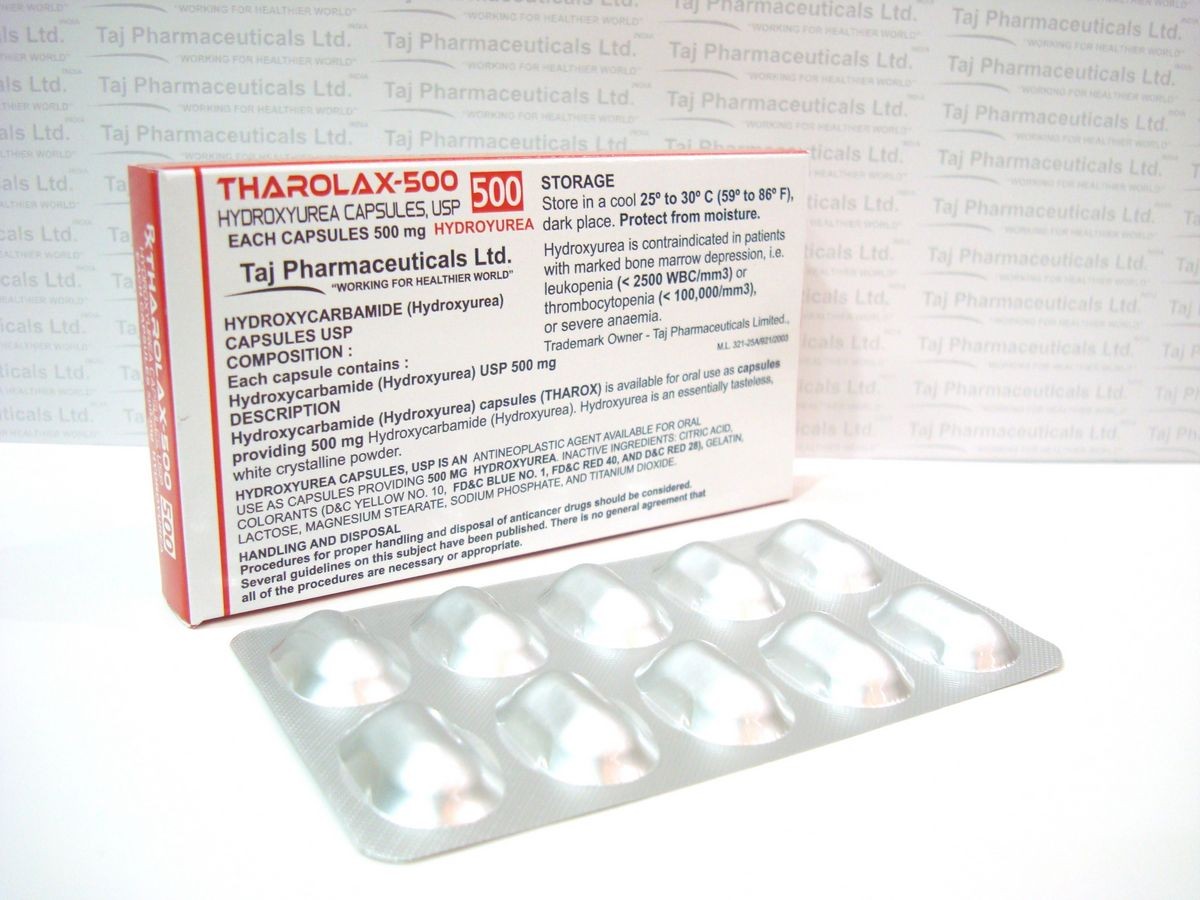
Contents
Side Effects of Hydrea (hydroxyurea)
The mechanism by which Hydrea treats cancer is not understood. It is thought that Hydrea inhibits the enzyme ribonucleotide reductase, leading to a reduction in DNA synthesis and growth of cancer cells.
Droxia, another form of hydroxyurea, is used to manage sickle cell disease, although its mechanism of action is not understood.
Common side effects of Hydrea include:
- loss of appetite,
- nausea,
- vomiting,
- diarrhea,
- constipation,
- sores in the mouth,
- skin rash,
- swelling in the hands, feet, legs and face,
- changes in skin pigmentation,
- hair loss,
- painful urination,
- drowsiness,
- headache, and
- dizziness.
Serious side effects of Hydrea include:
- bone marrow suppression (drop in white blood cell, red blood cell and platelet counts),
- disorientation,
- hallucinations,
- seizures,
- liver problems,
- shortness of breath,
- metabolic disturbances, and
- kidney problems.
Hydrea may interact with live vaccines, as it weakens the immune system. Platelet counts may drop when taking Hydrea along with anticoagulants, nonsteroidal anti-inflammatory drugs (NSAIDs), antiplatelets, and thrombolytic agents, increasing the risk of bleeding. It is not recommended to use medications that stimulate cell growth in patients who have been exposed to cytotoxic chemotherapy within 24 hours. Hydrea may increase blood uric acid concentration and should be used cautiously with uricosuric medications. The use of Hydrea with didanosine, with or without stavudine, has been associated with an increased incidence of pancreatitis and peripheral neuropathy. It is generally not recommended to use Hydrea in HIV patients due to decreased CD4 counts, decreased viral suppression, and increased risk of side effects.
Hydrea should not be used during pregnancy, as it may harm the fetus. It is secreted in breast milk, so breastfeeding should be stopped to prevent adverse reactions in the infant.
What are the important side effects of Hydrea (hydroxyurea)?
Known side effects include:
- bone marrow suppression (drop in white blood cell, red blood cell and platelet counts),
- anorexia,
- nausea,
- vomiting,
- diarrhea,
- constipation,
- sores in the mouth,
- skin rash,
- swelling in the hands, feet, legs and face,
- changes in skin pigmentation,
- hair loss,
- painful urination,
- drowsiness,
- headache,
- dizziness,
- disorientation,
- hallucinations,
- seizures,
- liver problems,
- shortness of breath,
- metabolic disturbances, and
- kidney problems.
Hydrea (hydroxyurea) side effects list for healthcare professionals
The following adverse reactions are described in detail in other labeling sections:
- Myelosuppression
- Malignancies
- Embryo-fetal toxicity
- Vasculitic toxicities
- Risks with concomitant use of antiretroviral drugs
- Radiation recall
- Macrocytosis
Postmarketing Experience
The following adverse reactions have been identified during postapproval use of Hydrea:
- Reproductive System and Breast disorders: azoospermia, and oligospermia
- Gastrointestinal disorders: stomatitis, nausea, vomiting, diarrhea, and constipation
- Metabolism and Nutrition disorders: anorexia, tumor lysis syndrome
- Skin and subcutaneous tissue disorders: maculopapular rash, skin ulceration, dermatomyositis-like skin changes, peripheral and facial erythema, hyperpigmentation, atrophy of skin and nails, scaling, violet papules, and alopecia
- Renal and urinary disorders: dysuria, elevations in serum uric acid, blood urea nitrogen (BUN), and creatinine levels
- Nervous system disorders:headache, dizziness, drowsiness, disorientation, hallucinations, and convulsions
- General Disorders:fever, chills, malaise, edema, and asthenia
- Hepatobiliary disorders: elevation of hepatic enzymes, cholestasis, and hepatitis
- Respiratory disorders: diffuse pulmonary infiltrates, dyspnea, and pulmonary fibrosis
Adverse reactions observed with combined hydroxyurea and irradiation therapy are similar to those reported with the use of hydroxyurea or radiation treatment alone. These effects primarily include:
- bone marrow depression (anemia and leukopenia),
- gastric irritation, and
- mucositis.
What drugs interact with Hydrea (hydroxyurea)?
Pancreatitis
- In patients with HIV infection during therapy with hydroxyurea and didanosine, with or without stavudine, fatal and nonfatal pancreatitis have occurred.
- Hydroxyurea is not indicated for the treatment of HIV infection; however, if patients with HIV infection are treated with hydroxyurea, and in particular, in combination with didanosine and/or stavudine, close monitoring for signs and symptoms of pancreatitis is recommended.
- Permanently discontinue therapy with hydroxyurea in patients who develop signs and symptoms of pancreatitis.
Hepatotoxicity
- Hepatotoxicity and hepatic failure resulting in death have been reported during postmarketing surveillance in patients with HIV infection treated with hydroxyurea and other antiretroviral drugs.
- Fatal hepatic events were reported most often in patients treated with the combination of hydroxyurea, didanosine, and stavudine. Avoid this combination.
Peripheral Neuropathy
- Peripheral neuropathy, which was severe in some cases, has been reported in patients with HIV infection receiving hydroxyurea in combination with antiretroviral drugs, including didanosine, with or without stavudine.
Test Interference
Interference with Uric Acid, Urea, Or Lactic Acid Assays
- Studies have shown that hydroxyurea interferes with the enzymes (urease, uricase, and lactate dehydrogenase) used in the determination of urea, uric acid, and lactic acid, resulting in falsely elevated results in patients treated with hydroxyurea.
Summary
Hydrea (hydroxyurea) is a cancer drug used to treat several types of cancers including chronic myelogenous leukemia (CML), acute myelogenous leukemia (AML), head and neck cancer, malignant melanoma, ovarian cancer, and polycythemia vera (a disorder of the bone marrow). Common side effects of Hydrea include loss of appetite, nausea, vomiting, diarrhea, constipation, sores in the mouth, skin rash, swelling in the hands, feet, legs and face, changes in skin pigmentation, hair loss, painful urination, drowsiness, headache, and dizziness. Hydrea may harm a fetus and should not be used during pregnancy. Hydrea is secreted in breast milk. Breastfeeding should be stopped due to the potential for serious adverse reactions in the infant.


